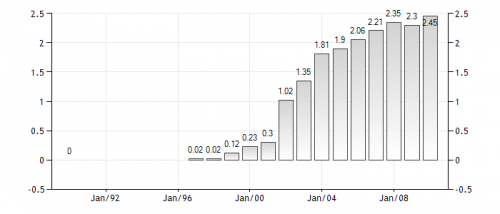ICT future unclear for Guinea-Bissau
The untimely death of Guinea-Bissau President Malam Bacai Sanha is not likely to bring significant change (read: optimism) to the nation. Optimism that is needed for economic growth. Passion that is needed to make Guinea-Bissau an information-based society. Instead of constructing new policies, the government’s focus is ensuring a peaceful and fair transition of power. The public, instead of focusing on education, are more keen on mourning and watching the government and the military with a wary eye. After all, Guinea-Bissau’s leadership has shifted between the military, interim governments, and three presidents six times in the past thirteen years (1999, 2000, 2003, 2005, 2009, 2012).
Often, the death of one leader means a clean slate for the nation (just look at how far Rwanda has come economically since Paul Kagame became president.) At least for now, there is a glimmer of hope that the future president’s initiatives will emphasize business development, technology incubation, and skills training. Unfortunately, 2+ years of relative stability did little to improve Guinea-Bissau’s infrastructure and ICT policies.
The future appears complex. Some observers fear that the political struggle may lead to a major destabilization. Destabilization that would historically benefit the military. Destabilization that has more-or-less defined Guinea-Bissau’s independence. National Assembly President Raimundo Pereira is currently the acting president until elections can be held in March 2012, but he won’t get a chance to do accomplish more than the prevention of civil unrest. There certainly won’t be any push for, say, a national ICT policy during Pereira’s tenure.
Even during the period of relatively stability during President Sanha’s rule (2009-2012) there were few efforts to create an information society. Former presidents Kumba Ialá and João Bernardo Vieira did little other than to partially privatize the telecoms sector.
Internet statistics are scarce. The latest ITU numbers – from 2009 – cited a stagnant 2.3-2.5% Internet penetration rate in Guinea-Bissau:

Internet users (per 100 people) in Guinea Bissau - World Bank (ITU). Notice the plateau around 2008. {Trading Economics}
Surely the availability has increased two-and-a-half years later with the proliferation of mobile devices, but it’s hard to say where it could stand. Facebook doesn’t even provide public user data for Guinea-Bissau (nor does it for Liberia, Ivory Coast, Zimbabwe, Sudan, Western Sahara). For one, the development of internet services is still limited by the country’s lack of electricity. Few areas, even in Bissau, receive power at all hours of the day. 3G is not yet available, either.
Even though mobile penetration is surely greater than 60% (it was 32% a couple of years ago) mobile operators don’t seem to be running on all cylinders:
- MTN Bissau’s site seemingly hasn’t been updated since 2010. A Twitter account has been inactive since 2009.
- Sonatel increased market share throughout 2011. The telecom operator has 90% ownership of mobile operator Orange Guinea. Unfortunately, Orange Guineas’s activities page was last updated in December 2010. Still in 2009 there were an estimated 118,000 mobile subscribers in the country – nearly twice as many than one year prior.
- Guinea Telecom and Guinetel (both bankrupt) are to be completely privatized soon. (The telecommunications sector was deregulated nearly ten years ago)
- In terms of broadband, 75% of Internet subscribers are through Orange who claimed 928 broadband subscribers at the end of 2009.
- A telecommunications law exists from 1999 that stipulates the need to create competitive conditions, seeks to lower access costs, and promises to increase telecoms coverage. A national ICT policy has never been discussed, although the UN attempted to assist in the formulation process years ago. Ten years later, the country was still in a stage of raising awareness.
The good news? Starting a business in Guinea-Bissau is easier than ever. The World Bank Group writes that the time to start a business has dropped from 216 days to 9 days.
Still, the nation needs broadband connectivity if online businesses, incubators, and e-services are to flourish. The fact that fewer than 2,000 broadband subscriptions existed as of 2009 is troubling. Perhaps even more daunting is the fact that no undersea cable is slated to connect to Guinea-Bissau. ACE and WACS will both bypass the coastal nation. The next leader will sorely need to invest in terrestrial fiber, 3G infrastructure, and above all, electricity.
We’ll watch closely as elections near in March 2012 to see how Bissauans utilize social media during the electoral process. Perhaps the event will encourage online participation in debate, discussion, and the overall creation of local content.












 Twitter
Twitter Facebook
Facebook Pinterest
Pinterest